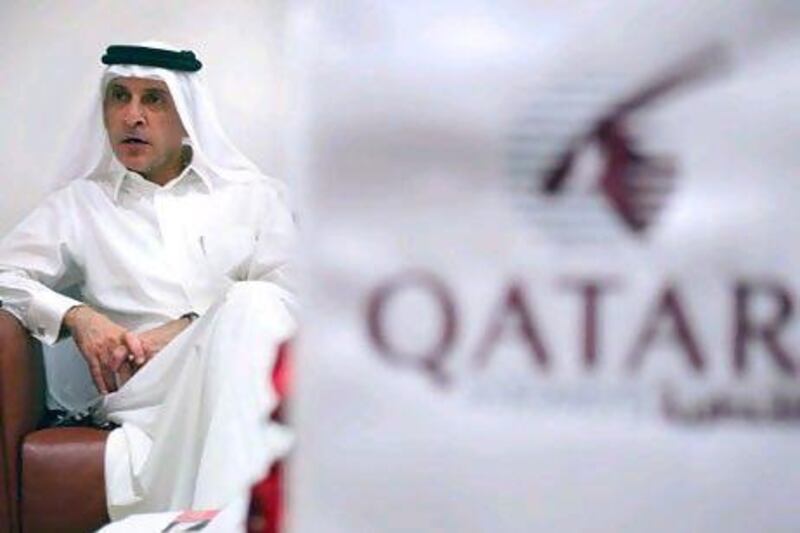Qatar Airways says the International Air Transport Association (IATA) lacks financial transparency and bungled the selection process over Etihad Airways' appointment to the board.
Akbar al Baker, Qatar Airways' chief executive, questioned the amount the airline industry body spent on several items including US$18 million (Dh66.1m) on travel, $58m on data processing and IT, and $29m on outsourcing and consultancy.
He called on IATA to justify "such large sums spent on travel" and the processes by which consultant and outsourcing contracts were awarded.
IATA is a global advocacy and trade group, representing 237 airlines and 93 per cent of all scheduled airline traffic, and also oversees billing and settlements between airlines totalling billions of dollars each year. More than two dozen airlines in the Middle East and North Africa are paying members.
Mr al Baker backed a motion for IATA to reconsider the appointment of its auditors, having been unconvinced about the industry body's financial accounts and auditing process.
The scrutiny of IATA's finances follows the discovery of a fraud ring within the group's Thailand offices where several former employees skimmed off $17m between 2006 and 2009, including from the accounts of some airlines based in the Gulf.
Mr al Baker is one of the most outspoken airline chief executives in the industry and in recent years has accused Boeing of being "run by bean-counters and lawyers", and saying he wished he could "throw away" the Qatar Airways' current fleet of Airbus A340-600s.
But Mr al Baker's complaints this week, made during the IATA's annual meeting in Singapore, also underscored concernfrom some airlines that the group puts an outdated emphasis on European airlines.
"Clearly there is the view that this is an entity that is run for the few by the few, and that has to end," said Tim Clark, the president of Emirates Airline. "You must, in the view of Emirates, open up the dialogue far more. We need to see action."
Mr al Baker questioned the process that led to the appointment of James Hogan, the chief executive of Etihad Airways, to the IATA board of directors.
"We believe such issues should not be surprises," Mr al Baker said. "Firstly, such decisions should be transparent and secondly, if geographical representation is the basis of the composition of the board, the regional airlines involved should be informed in advance of their regional allotments so that they can co-ordinate who should represent them."
Etihad has expanded heavily through airline partnerships in recent years, including a major tie-up with Virgin Australia, and its seat on the IATA board was expected to help the carrier expand its global presence within the industry. Yesterday, an Etihad spokesman said the appointment was a major coup for the airline and the region.
"With the aviation industry facing so many challenges, the role of the IATA has never been more important. The additional representation being afforded to our region by the election of James Hogan to the board of governors is a very positive step for all carriers in the region."





